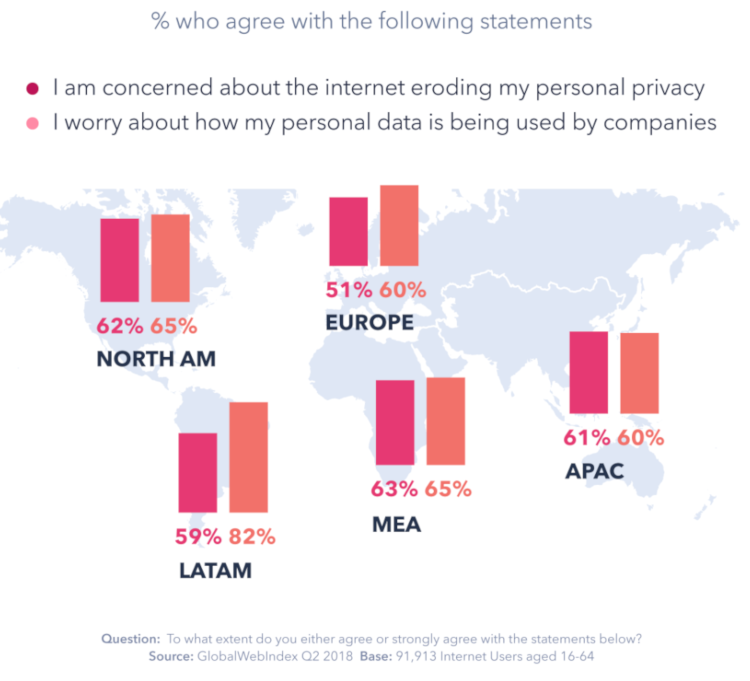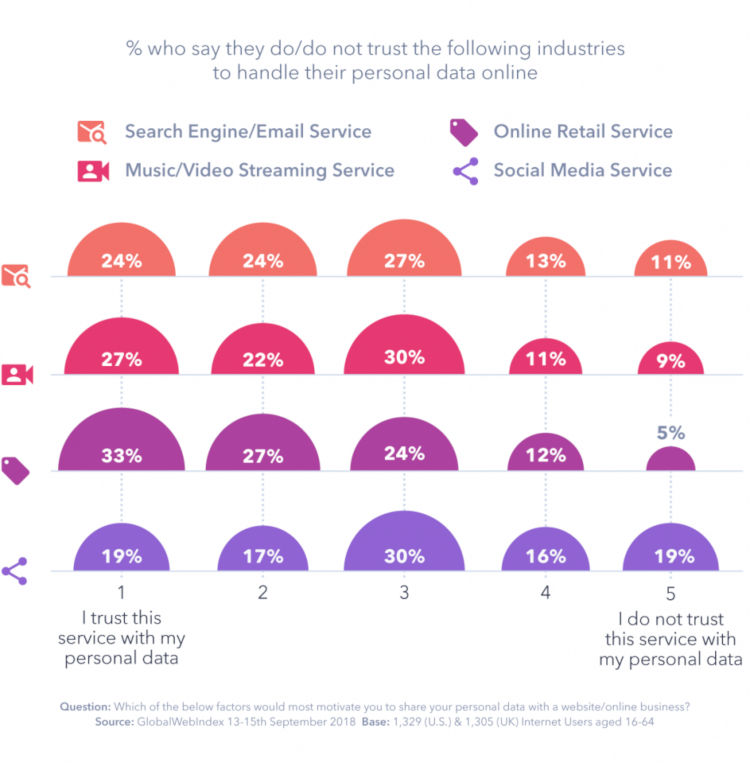 The year 2018 witnessed significant shifts in the way companies think about data, privacy and brand trust. Culmination of corporate privacy scandals and data legislation in some parts of the world encouraged consumers to get to grips with their digital footprints. Companies are compelled to confront and re-evaluate what’s at stake concerning commercial data collection and processing.
The year 2018 witnessed significant shifts in the way companies think about data, privacy and brand trust. Culmination of corporate privacy scandals and data legislation in some parts of the world encouraged consumers to get to grips with their digital footprints. Companies are compelled to confront and re-evaluate what’s at stake concerning commercial data collection and processing.
As per Global Web Index, 63 percent of onliners in the Middle East & Africa (MEA) region are concerned about the internet eroding their personal privacy, while 65 percent of them worry about their personal data being used by the companies.
In this backdrop, companies must focus on building sincere relationships with consumers to close the gap.

To build these consumer relationships, trust has become an absolute fundamental in any brand’s proposition. The likes of GDPR mobilized companies all around the world to be upfront with consumers and allow them more control over which data they share. Within this new digital landscape, company reputations hinge on trust and transparency credentials over personal data.
As per Global Web Index, 60 percent of consumers trust online retail services with handling their personal data. This is the only sector in the study in which the highest consumer trust rating outscores all other ratings. For every other sector, consumers are most likely to say they’re undecided on their trust levels.
Music and video streaming services also enjoy strong trust reputation among internet users. Despite the apparent disillusionment with the online advertising industry manifested in the ad-blocking trend and recent cases of tech companies scanning emails to inform ad targeting, search engines and email services also have positive reputations.

Compared to the other industries included in the survey, a third of the consumers are most likely to say that they don’t trust a social media service with their personal information. While this industry may be fighting back to recover its credibility and reputation, it seems consumer opinion is largely open to improvements.
As various functionalities are similar across many social platforms, thanks to the major networks drawing inspiration from each other in a bid to stay competitive, trust will be a deciding factor for many consumers as they choose which platform to turn to for certain activities.
But beyond these prerequisites to data sharing, younger age groups tend to look at their personal information as more of an asset, placing a much stronger emphasis on getting something out of sharing their data with companies online. As many companies scramble to present themselves as trustworthy, consumers now have more bargaining power with their data and many are keen to take advantage of this.
Brands now need to think more creatively about how to entice consumers to share their data.
Some consumers are turning to services which explicit the value of their data by exchanging it for services or even monetary rewards. For example, almost a third of 16-34s say that they would share their data with a company online if that data could be exchanged for free access to content or services.
In any case, whether they’re relying on personal data for their ad campaigns or if they’re one of many companies reviving contextual ads, online companies must begin thinking in terms of transparency-by-design to secure consumer trust.




